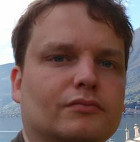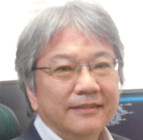About this workshop
Recently, some international initiatives such as the LIDER European project (www.lider-project.eu) and the W3C OntoLex, BPMLOD, and LD4LT community groups, as well as the Open Knowledge Foundation (OKFN) Working Group for Open Data in Linguistics (OWLG), have promoted an ecosystem of linguistic linked open data (LLOD) around which there is a growing community of interested stakeholders. Such an ecosystem comprises new linked data-based versions of well known families of language resources (e.g., Wordnets, Apertiums, annotated corpora...), guidelines and best practices on linguistic linked data and NLP services, and new representation models such as lemon-OntoLex and NIF. The above-mentioned initiatives have made possible the emergence of such a LLOD cloud, which will be the basis for a new generation of linked data-aware NLP services. One of the main motivations of this workshop is, precisely, to move the LLOD cloud from its current stage into a next phase in which innovative applications will be developed on top of it, aimed to overcome the language barriers on the Web.
LIDER and the LLOD originated in the NLP and language resource communities and we believe this workshop will provide a forum for interaction of computational linguists, NLP researchers, and the language technology industry with Semantic Web practitioners. Furthermore we intend to instigate cross-continent community collaboration between the European-oriented movement and Asian efforts.
To integrate or link language/knowledge resources across languages will greatly enhance the utility and usability of these resources. For example, the EDR Electronic Dictionary (with 400k concept nodes with over 900k relations), developed as a Japanese national project more than 20 years ago, would regain its value by integrated with other resources as a part of LLOD. The resulted resource then would be effectively utilized in a variety of cross-language applications. However actually realizing this scenario would require sophisticated methodologies, since the underlying conceptualization, somewhat reflecting Japanese/Asian way of thinking and world recognition, may largely different from that of, for example, Europe. In addition, extending the LLOD representation framework to incorporating these varieties would be necessary.










